
Admiral Nurse Dementia Helpline
Call or email our Dementia Helpline/Alzheimer's Helpline for reassuring and practical advice from our specialist team of Admiral Nurses.
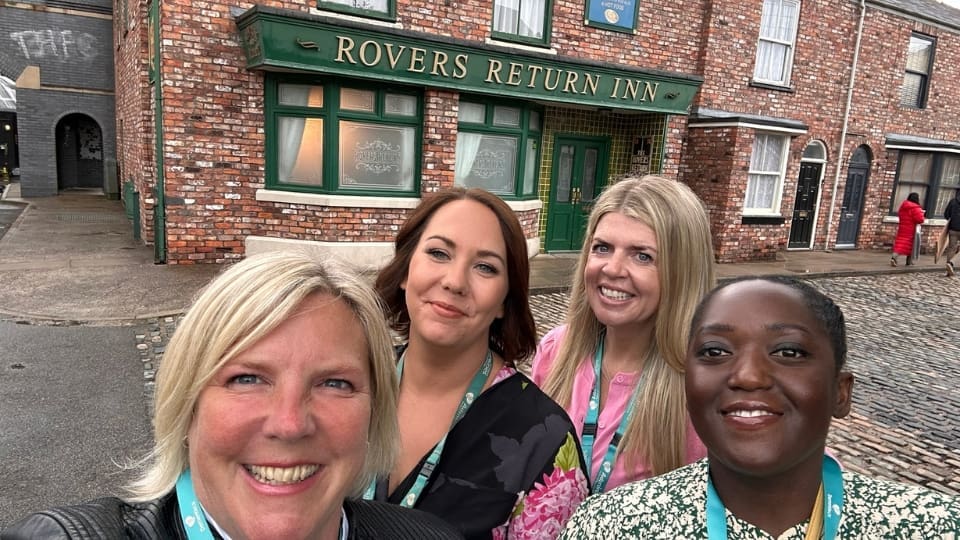
Over the past year, our dementia specialist Admiral Nurses have been working with Coronation Street’s producers and Story Team to advise on the character Debbie Webster’s young onset vascular dementia storyline.
Hannah Gardner, Consultant Admiral Nurse for Children and Young People, and Sophie Dodsworth, Admiral Nurse for Young Onset Dementia, are part of the Dementia UK team advising on the storyline. In this Q&A, they share how their clinical expertise and personal experiences enable them to advise on the storyline so it is told as truthfully and sensitively as possible.
Hannah: I have worked with people affected by dementia throughout the course of my 22-year nursing career. I’ve been an Admiral Nurse with Dementia UK for almost eight years. I have worked on our Helpline and in virtual clinic appointments and am now the Consultant Admiral Nurse for Children and Young People.
My previous roles have involved supporting people and families affected by rarer types of dementia across the UK and working as a Clinical Lead Admiral Nurse within an NHS hospital. In these positions, I gained vital experience supporting families living with various types of dementia in different circumstances.
Sophie: I’ve supported people with dementia for 15 years across a variety of healthcare settings. Before becoming an Admiral Nurse, I worked in a dementia palliative care service where I supported people living with different types of dementia at the end of their life.
I became an Admiral Nurse in 2023, leading a community Admiral Nurse service, and joined Dementia UK earlier this year as an Admiral Nurse for young onset dementia. I’ve always had a passion for supporting families affected by young onset dementia, where symptoms develop before the age of 65. It’s a privilege to help them through a time that can be incredibly challenging.
Hannah: Our experience of supporting families affected by young onset dementia gives us a unique insight into the challenges they often face. Whether that’s the time it takes to get a diagnosis – on average 4.4 years in younger people compared to 2.2 years for people aged over 65 – or not recognising early symptoms of the condition.
The families we support are always at the front of our mind when we advise on the storyline. We want to ensure the storyline reflects what families go through in order to raise awareness of young onset dementia and debunk the myth that dementia is a condition that only affects older people.
Sophie: As Admiral Nurses, we support the entire family – because if you love someone with dementia, you’re living with it too. In addition to advising on how Debbie’s dementia might affect her, we also consider the impact of her diagnosis on her family and friends and advise on how they may be feeling at different moments in the storyline.
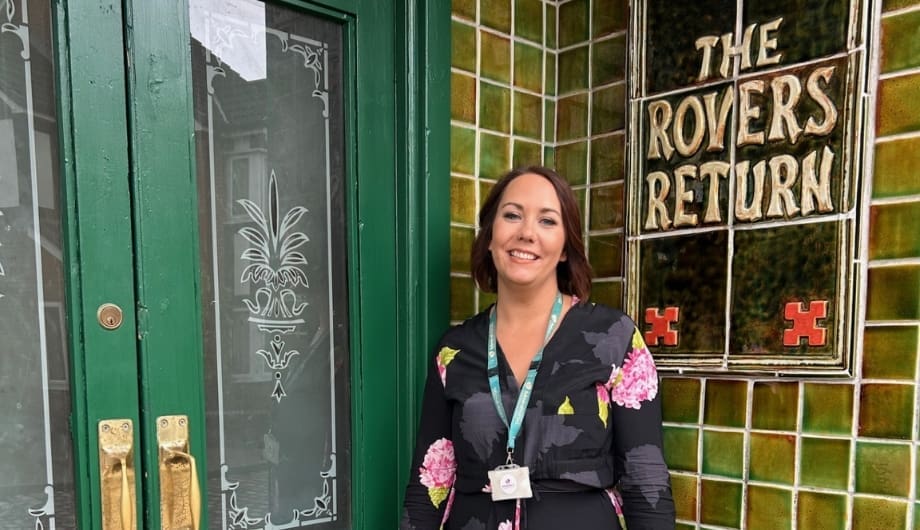
Admiral Nurse for young onset dementia, Sophie Dodsworth, on the set of Coronation Street
Earlier this year we were invited to Coronation Street’s Wellbeing Day for the cast, crew and their families. We know the collaborative effort it takes for storylines like Debbie’s to be played out on screen week in, week out, so it was great to be given the opportunity to share our specialist advice and support with those who work on the show too.
Hannah: My mum developed young onset dementia in her early 50s, so I understand the emotional impact a diagnosis has on the whole family and the lack of support available.
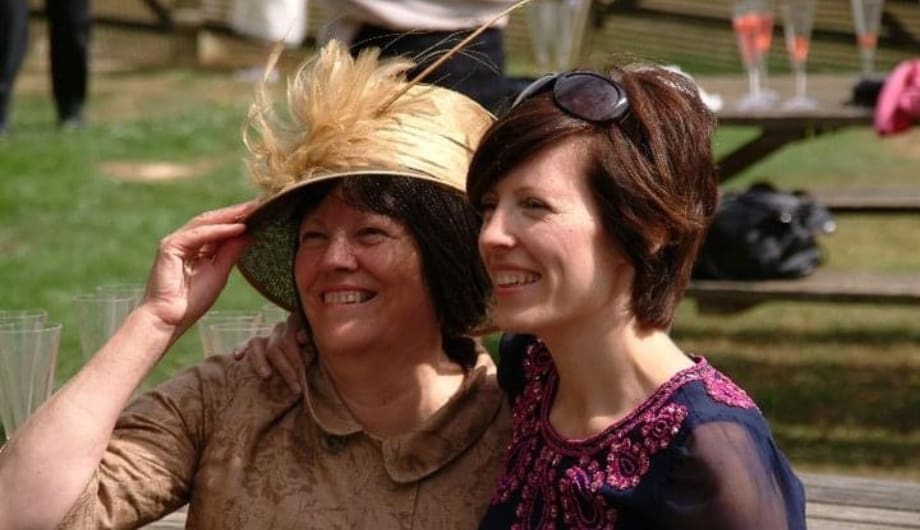
Consultant Admiral Nurse Hannah Gardner (right) with her mum (left).
Many people didn’t realise my mum had dementia as her main symptoms weren’t memory related – they were mainly language difficulties – or they didn’t think someone could be diagnosed with dementia at a younger age. I use this personal experience when advising on Debbie’s storyline to try and raise awareness that dementia impacts so many different aspects of life – it isn’t just a memory problem.
Sophie: My husband had a stroke in his 30s which was a huge shock for our family. Debbie has young onset vascular dementia which is caused by damage or disease to the blood vessels in the brain, often as the result of a stroke or transient ischaemic attack(s) (TIAs), also known as ‘mini strokes’.
I’ve been able to use both my clinical knowledge and personal experience of caring for my husband after his stroke when advising the producers and Story Team on how Debbie’s TIAs might affect her. It’s also given me a unique perspective into how illness at a younger age can affect families and the challenges that go alongside this, for example the effect on our household income when my husband wasn’t able to work.
Hannah: Everyone living with dementia is different – no two people will have the exact same symptoms.
With this in mind, we’ve been looking at Debbie’s character as a whole, including what she was like before she developed dementia, to ensure we can tailor our advice to how we think Debbie’s symptoms might develop in the most realistic way possible.
Sophie: We work collaboratively as part of a team of Admiral Nurses when advising on the storyline. Admiral Nurses all have different backgrounds and areas of specialism, so we bring in different colleagues to share their expertise and make sure Coronation Street’s producers and Story Team receive the best advice possible.
Hannah: It’s vital. Soaps like Coronation Street and EastEnders are giving families affected by young onset dementia a voice. They are raising awareness that dementia doesn’t discriminate – it can affect younger people too.
Sophie: Dementia can still be a taboo subject for some people. Soap storylines like Debbie’s can act as a vehicle to open up conversations about dementia, which we hope will help to breakdown the stigma associated with the condition and encourage people to reach out for support that they so desperately need.
Hannah: That you’re not labelled by dementia – it doesn’t define you. Everything didn’t change for Debbie the moment she received her diagnosis, and I think that’s an important message to take away. With the right advice and support, people can still have a fulfilling life with dementia.
Sophie: I hope viewers take away that if you’re affected by dementia – whether you’re living with the condition yourself or are caring for someone who is – you don’t need to go through it alone.
Admiral Nurses like me and Hannah are here to provide practical and emotional support to families affected by all types of dementia whenever it’s needed, whether that’s through our free Helpline, virtual or face-to-face clinic appointments or our online sessions, ‘Dementia: what next?’.
If like Debbie, you’re living with young onset dementia, or care for someone who is, there is a section about young onset dementia on our website that contains information about symptoms, getting a diagnosis and how to live with the condition, as well as a database of age-appropriate support across the UK.

Call or email our Dementia Helpline/Alzheimer's Helpline for reassuring and practical advice from our specialist team of Admiral Nurses.
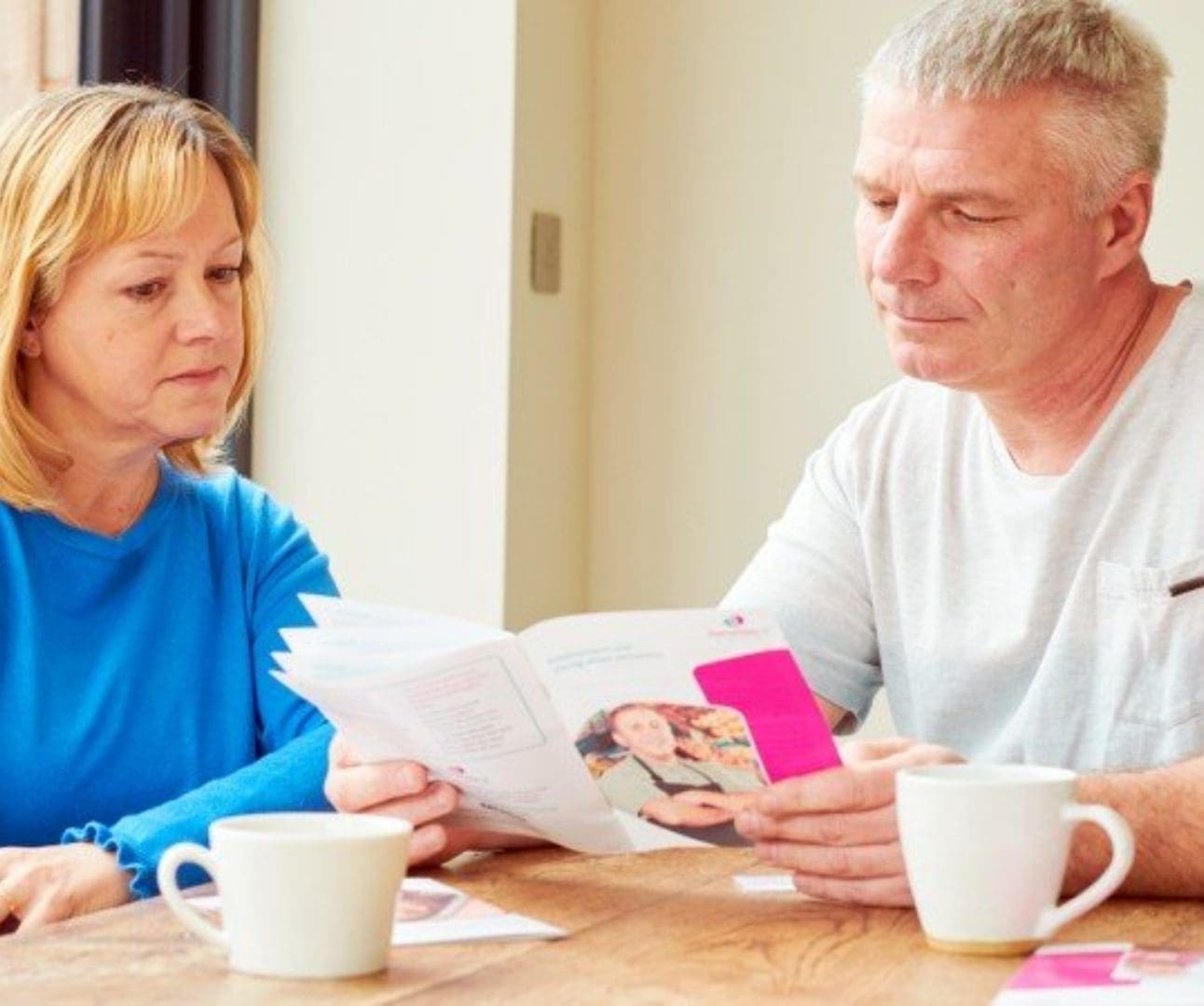
Information and resources about young onset dementia, where symptoms develop before the age of 65.
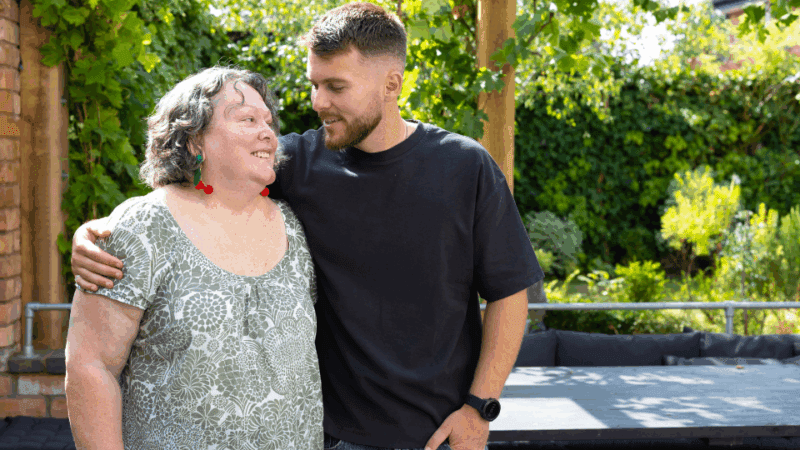
Ronnie and her son, Will, reflect on how her diagnosis of young onset Alzheimer’s disease has impacted their lives.